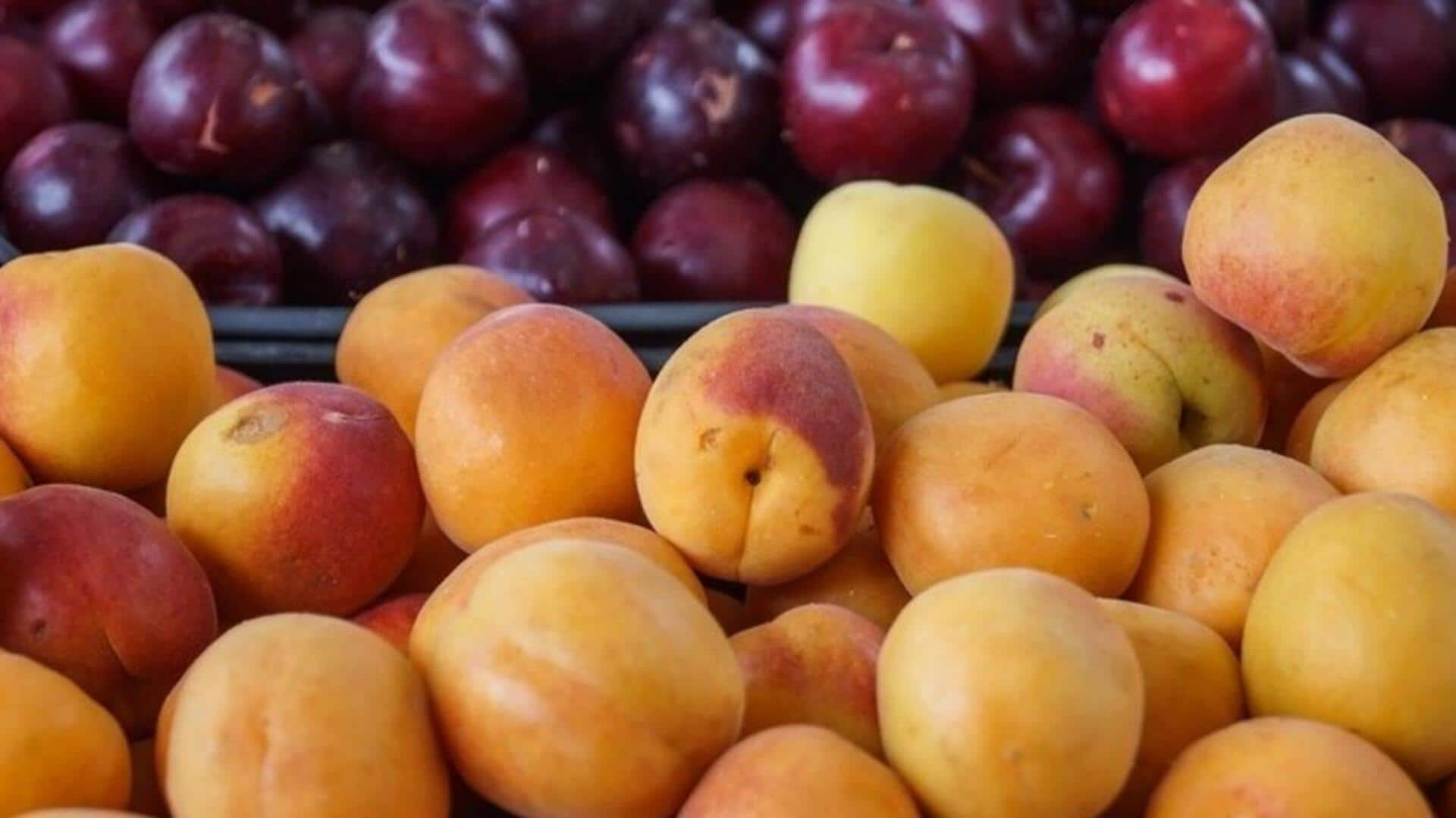
Plums vs. apricots: A detailed nutritional comparison
What's the story
Summer brings a bounty of fruits, each offering a unique blend of flavors and health benefits. Plums and apricots, both loved for their vibrant colors and wellness perks, are compared here in terms of nutrition. We highlight their vitamin content, health benefits, and even culinary uses. This comparison helps you make informed decisions about your diet.
Vitamins
Vitamin content comparison
Apricots are an excellent source of vitamin A, providing 12% of the daily value per 100 grams. They also contain vitamins C and E. Plums offer a decent amount of vitamin C (10% per 100 grams), and small quantities of vitamin A and K. Each fruit boasts a distinct vitamin profile, contributing differently to your health.
Minerals
Mineral richness unveiled
Both fruits provide essential minerals, but in different strengths. Apricots contain more potassium (259 milligrams per 100 grams) than plums. Potassium is important for heart health and blood pressure regulation. On the other hand, plums outshine apricots in iron content, which is vital for blood production and oxygen transport (157 milligrams per 100 grams).
Fiber
Fiber content face-off
Fiber is crucial for maintaining a healthy digestive system, and both fruits help you reach your daily intake goals. Plums hold a slight edge over apricots in terms of dietary fiber content. They offer around two grams per 100 grams of fruit, while apricots provide one gram for the same serving size. Incorporating both fruits into your diet will support regular bowel movements and reduce the risk of constipation.
Antioxidants
Antioxidant abilities explored
Both plums and apricots are rich in antioxidants, essential for combating harmful free radicals in the body. This helps reduce oxidative stress associated with chronic diseases such as cancer or heart disease. While apricots are a good source of beta-carotene, an antioxidant that transforms into vitamin A in the body, plums boast a high content of anthocyanins. These compounds provide plums their deep color while offering potent antioxidant properties.
Culinary
Culinary uses beyond desserts
Both plums and apricots have uses that extend beyond eating them fresh. Apricots, with their sweet-tart flavor, make excellent jams, sauces, or glazes. Try pairing them with poultry or pork for a unique twist. Plums, on the other hand, are juicier and work wonders in pies, tarts, or even smoothies for a refreshing burst of flavor. These applications not only amplify taste but also contribute valuable nutrition.